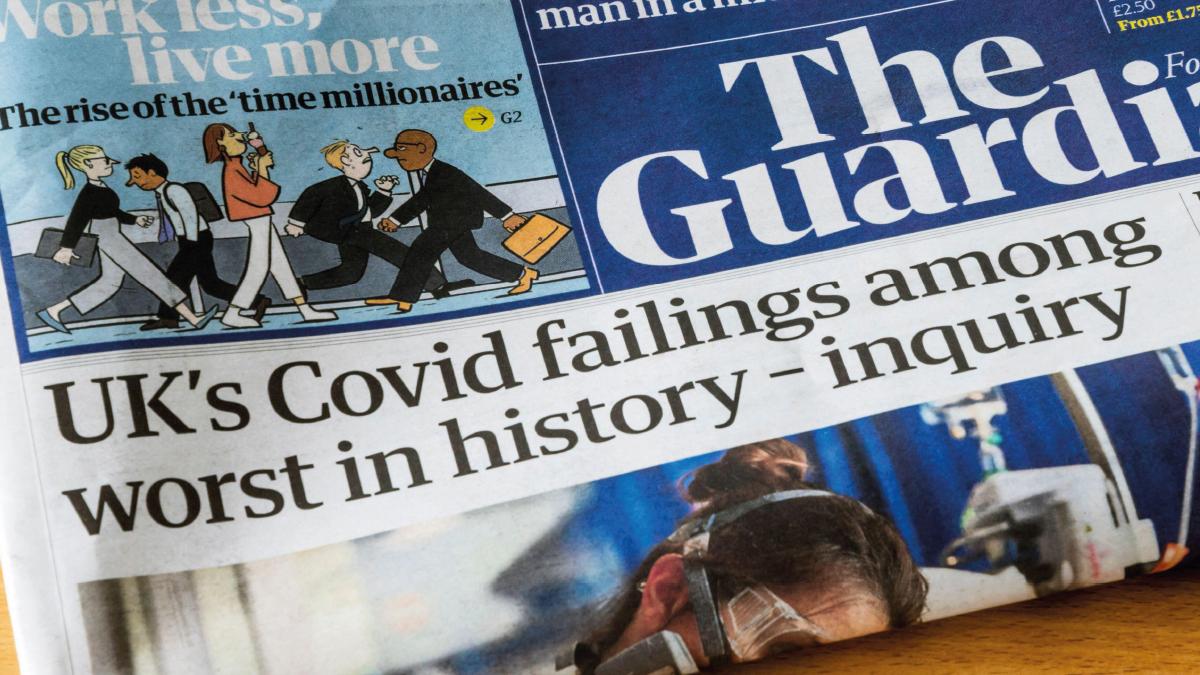The Covid-19 pandemic brought immense hardship and loss for the entire physiotherapy community. How will your voice be heard?

The independent Covid-19 Inquiry has been set up to examine the UK’s pandemic response and preparedness, and to learn from the lessons for the future.
The inquiry is expected to last several years. But despite the length of time, this is a valuable opportunity to hold state decision-makers accountable for their actions – and inaction – before and during the pandemic.
The inquiry is taking written and oral evidence across several modules:
Module 1 will focus on pandemic preparedness, and will in-part consider the impact of government austerity measures on the ability of public services to protect staff, patients, and the public. Work on this module is already underway, and public hearings are expected to take place this summer.
Module 2 will focus on government decision-making during the pandemic, including how each UK nation worked with employers and other stakeholders to arrange for personal protective equipment (PPE), ventilation, and social distancing measures.
It will also examine how governments considered or failed to consider structural discrimination within society. This is a crucial line of enquiry. We know that the risk of death or serious illness was higher among people in Black, Asian and minority ethnic groups, for example; and the inquiry provides an opportunity to document how state decision-makers’ failure to consider societal inequalities caused particular harm to already-disenfranchised populations.
Module 3 will consider how the healthcare system coped during the pandemic. This will include consideration of how healthcare workers were supported – or not – and how governments in each nation engaged with healthcare settings. Public hearings for this module are expected to open in 2024.
Further modules are expected at a later date. It is there where we expect an examination of the UK’s vaccine programme, for example.
CSP members’ interests will be represented in each of these modules.
Through our affiliation with the Trades Union Congress, we are considered a ‘core participant ‘for each module to date. This grants us privileged access to key evidence, the right to submit questions to witnesses, and the ability to review draft reports and recommendations.
Additionally, the CSP is contributing independently as a ‘material provider’, speaking on issues where members have particular insights.
We’re making the case that the inquiry should address key issues affecting our members and their patients. These include how:
- unrelenting pressures on the UK’s health systems – pre-dating but exacerbated by the pandemic – are taking a toll on the physiotherapy workforce in terms of burn out, low morale and retention.
- temporary staff were under-utilised through the pandemic – despite thousands of physiotherapy students, retirees and non-NHS staff mobilising to be part of the temporary register.
- national infection, prevention and control guidance were not always aligned across the UK and changed regularly, causing confusion amongst healthcare services. In addition, the international consensus that the transmission of the virus is airborne was not fully reflected in national guidance.
- the ability to source PPE was challenging for many members – particularly outside the NHS – at the start of the pandemic.
The CSP encourages all members to make their voices heard. Jim Fahie, CSP assistant director of Employment Relations and Union Services, says: ‘The inquiry should document the professions’ contribution to public safety during the pandemic – but also hear how our hands were tied by a decade of austerity, cuts to the Health and Safety Executive and healthcare understaffing.
‘We want a record of the avoidable harms that befell our members’ health, livelihoods and loved ones – but also draw attention to how investment in the healthcare workforce and rehabilitation services could improve our nations’ resilience to future shock.’
The inquiry has opened a listening exercise, so that the public can anonymously share how the pandemic affected them. We encourage members to participate in this. The CSP will also circulate internal calls for evidence, so that members can help shape our formal submissions. Visit our new Covid Inquiry hub to contribute and access support.
Find Out More
Number of subscribers: 1




































